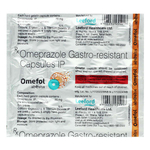cucid
Introduction to cucid
Cucid is a medication primarily used to treat various stomach-related conditions. It helps in reducing the production of stomach acid, providing relief from symptoms like heartburn and acid reflux.
Composition of cucid
The active ingredient in cucid is Esomeprazole. This component works by inhibiting the proton pump in the stomach lining, which is responsible for secreting hydrochloric acid.
Uses of cucid
- Treats Gastroesophageal reflux disease (GERD)
- Heals peptic ulcers
- Manages Zollinger-Ellison syndrome
- Combats Helicobacter pylori infection
- Heals erosive esophagitis caused by acid reflux
Side effects of cucid
Common side effects:
- Diarrhea
- Headache
- Abdominal pain
Serious side effects:
- Tiredness and weakness
- Numbness
- Irregular heartbeat
- Seizures due to low magnesium levels
- Rare mood-related side effects, sleep disturbances, and cognitive effects like confusion or dizziness
Precautions of cucid
Before taking cucid, inform your doctor if you have any liver problems or low levels of magnesium, calcium, or potassium. Long-term use can lower your vitamin B12 and magnesium levels, and might increase your risk of broken bones or a type of lupus. Avoid taking it with medicines containing rilpivirine.
How to Take cucid
- Adults with heartburn usually take 20mg or 40mg once a day for five days.
- Teens aged 12-17 take the same dose, but for a longer time, 4-8 weeks to heal or 4 weeks for symptom relief.
Conclusion of cucid
Cucid is an effective medication for treating various stomach-related conditions by reducing stomach acid production. However, it is important to be aware of its side effects and take necessary precautions. Always consult with your healthcare provider before starting or stopping any medication.













.svg)
